When it comes to niche developers with fantastic genuine intellectual properties on its shoulders, PlatinumGames is one that you’ll see gamers mentioning all over the internet. Platinum, among other developers such as Grasshopper Manufacture, Team Ninja, and the now-defunct GameRepublic, is a company synonymous with action games and one that has a goal; to revive the Japanese gaming industry's vigor, and strive to deliver the best games without compromising quality.
However, goals aren’t always easy to accomplish as obstacles and challenges will always attempt to extinguish the burning fire. PlatinumGames has come a long way, and looking back, not every game they’ve made proved to be a commercial success. In fact, only a few of their titles were financially successful despite most of their games being critical hits and fun to play.
What many don’t know is that PlatinumGames has faced a period where it was reaching the point of losing its business if it weren’t for the success that was NieR: Automata and Astral Chain. Today, I'll take you in a journey where we look back at PlatinumGames’ beginning, the struggle, and present. I hope you enjoy it.
However, goals aren’t always easy to accomplish as obstacles and challenges will always attempt to extinguish the burning fire. PlatinumGames has come a long way, and looking back, not every game they’ve made proved to be a commercial success. In fact, only a few of their titles were financially successful despite most of their games being critical hits and fun to play.
What many don’t know is that PlatinumGames has faced a period where it was reaching the point of losing its business if it weren’t for the success that was NieR: Automata and Astral Chain. Today, I'll take you in a journey where we look back at PlatinumGames’ beginning, the struggle, and present. I hope you enjoy it.
The starting point with the blue, SEGA
Upon the closure of Capcom's Clover Studio in 2007, members of Clover went on to found PlatinumGames shortly after. However, nothing was heard from the company that year until Sega announced in 2008 that they are partnering with PlatinumGames to publish 4 games. This, to many, felt like yet another Capcom Five, but at that time it was Sega Five.
The 4 games were: Vanquish, Bayonetta, MadWorld, and Infinite Space. These particular games were an attempt to carry on Capcom Five's original spirit , and an ambitious plan to make big games that will cater to the western audience.
These 4 games were a risky decision by Sega at the time since there was no guarantee how these would perform. But at the same time, it was a pretty courageous experiment from Sega to publish these games. Not only did it help PlatinumGames build a reputation for itself, but also guarantee partnership with other publishers thanks to their fantastic games.
The first game to be released among these 4 was MadWorld. A beat 'em up hack and slash title with an interesting art style similar to Frank Miller's Sin City. While the game was designed with the intent of catering to the western audience, the team's motive was to bring a unique and fun to play title that'll use the Nintendo's Wii features to their maximum capacity.
When looking at the Wii library, there weren't many great M-rated games on the system. Yet, games such as No More Heroes and MadWorld proved that the system is capable of delivering an engaging, bloody, fun to play game. (If done right, of course).
You would think that such games will sell well, but that wasn't the case for MadWorld. The game ended up selling poorly despite receiving positive reviews from renowned journalist sites such as IGN, Game Informer and Gamespot. The game failed to reach its goal, and was a victim that sparked a moot discussion concerning the excessive violence.
Regardless, low sales didn't shake the burning spirit of PlatinumGames. Not even one bit. In fact, the company has expressed that it was ready to develop a sequel to the game anytime, which at the time many speculated that it would be a sequel on the Wii. MadWorld's director, Shigenori Nishikawa expressed that by saying the following:
"I think MadWorld was very well received and was acknowledged for its innovative graphical style and gameplay. We would definitely be interested in making a sequel in the future."
One would blame Sega for the low sales, but the latter went hard on the marketing side. The game was hyped by God Hand fans who were looking for something to quench their thirst, but in the end, MadWorld was deemed a commercial flop.
Even if MadWorld was a commercial flop, it's still remembered in the beat em up community as a memorable badass game. Thanks to emulators, the game is still being discovered to this day.
The second game to come out of Sega and PlatinumGames parternship is Infinite Space on the Nintendo DS. Originally known as Infinite Line, Infinite Space was an RPG with space simulation and real-time-strategy elements. Unlike MadWorld, Infinite Space was a moderate success, both commercially and critically in Japan. However, sales were unsatisfactory on the west. Again, PlatinumGames and Sega have failed to appease their targeted audience, the west.
With two games from the Sega x PlatinumGames parternship failling to reach satisfactory sales on the the west, PlatinumGames managed to slice a bit of hope by announcing their newest hit title, Bayonetta.
Directed by Devil May Cry's original creator, Hideki Kamiya, Bayonetta was the first best thing to happen to PlatinumGames. First, it gave PlatinumGames an IP that could compete with juggernauts such as God of War, Devil May Cry, Ninja Gaiden and other titles from the era. Secondly, PlatinumGames proved with their formidable teamwork, and their different approach when it comes to games that they are capable of coming up with amazing titles. Nobody saw this bomb coming from PlatinumGames.
However, the making of such a well-crafted game nearly broke PlatinumGames as the company has set high standards for the game. Not only that, but looking back at previous titles, PlatinumGames didn't want the game to sell less than expected. The team gave it all, and the results? Fruitful.
Atsushi Inaba talks about their struggle when making Bayonetta and how it nearly broke them if it wasn't for the positive vibes they received upon the release of their game. He says:
"At the end of development on Bayonetta, nobody was happy. Everybody was really frustrated and angry, and we pushed really hard to finish that game and asked too much, and then asked even more of the team and of each other . At the end, nobody was like, ‘Oh yay. We got it finished.’ Everybody was like, ‘We’re never doing that again,’ and at each other’s throats. It was a very negative vibe that I still remember to this day.”
It's easy to notice why the developers were frustrated when one plays Bayonetta. Such game requires a dedicated developer team with high creativity techniques to pull such thing. Beautiful graphics, brutal finishers, and a badass protagonist wearing heels equipped with guns. Would you have thought of something such as this if you haven't played Bayonetta? No.
The success of Bayonetta on various consoles has nudged the team to do a sequel even if it was to be another " frustrating experience ". Atsushi Inaba says that in the following:
"That's how games are. Teams kind of burn themselves out and then they get all that feedback and they get recharged and then people say that they're ready to do it again. And Bayonetta was a really, really strong example of that".
When many thought that PlatinumGames wouldn't come out with something as good as Bayonetta, PG announced yet another fantastic hit, Vanquish. Directed by Shinji Mikami himself, the game drew inspiration from Tatsunko Productions' Neo-Human Casshan, and was originally planned to be an open world game, but that was eventually scrapped to heavily focus on providing a linear experience.
With Bayonetta selling well both in Japan and the West, Vanquish has also managed to meet Sega's expectations. Vanquish went to be a critical success and a title that blew everyone away. To this day, its fast-paced action shooting still manages to capture an audience thirsty for a non-stop action experience which is tough to find something similar elsewhere.
Moving forward after Vanquish, PG was in discussion to extend their partnership with SEGA by opting for one last game, and that was Anarchy Reigns. The sequel to MadWorld.
Despite being a sequel to MadWorld, Anarchy Reigns didn't have the Sin City-like visuals. The game went with an average graphics style of that era, but featured impressive combat style that is much better than MadWorld. Yet sadly, upon its release, the game flopped commercially both in Japan and the West. That was the nail in the coffin for both MadWorld and Anarchy Reigns. It's obvious that when Sega sees these numbers, they won't bother with remastering any of them.
Kojima seeks help from PlatinumGames:
Shortly after the release of Metal Gear Solid: Guns of the Patriots, Kojima was already amidst the process of coming with ideas for the next installment in the franchise. Initial concepts were far different than the final product. Originally, the game was meant to include The Boss
and her comrades. However, the lack of
involvement from Kojima resulted in the project being cancelled.
Shortly after, a member of the team suggested a game featuring Raiden as the main character. As a result, work on a game featuring Raiden as the protagonist was in the works. The game was titled Metal Gear Solid: Rising, and was to carry the roots of its predecessors, but this time, giving the player the freedom to play as a powerful cyborg capable of cutting anything that comes his way.
MGS:R was first showcased on E3 2010 with a gameplay that demonstrated Raiden's capabilities of slicing his enemies to pieces, running at full speed and slowing time for a brief moment. However, that project was also cancelled due to Kojima finding it difficult to implement all of his ideas.
Kojima fought to make the project a reality and so plans to move the project to other developers outside Konami has begun. Kojima thought about handing the project to western developers, but he felt Japanese developers were the best when it came to action games. It was at 2011 that Kojima would meet up with Atsuchi Inaba who then requested to work in the game.
Much of the previous content from Metal Gear Solid: Rising was scrapped, focusing heavily on providing the player with an over-the top action game that they'll have to play to believe. The game was then named Metal Gear Rising: Revengeance Upon its release, the game sold very well, proving once again that PlatinumGames is the best when it came to action games, and also a savior.
The Struggle:
This successful series of achievements by Platinum Games, and especially their great work on Metal Gear Rising: Revengeance has nudged other companies to seek out Platinum. The first to do that was Nintendo with their The Wonderful 101 which was released exclusively on the Wii U back in 2013.
The Wonderful 101 was directed by Hideki Kamiya and is considered by many a spiritual successor to Viewtiful Joe. Two solid beat em up sidescrollers with unique visuals, intense action and beautiful touch on each corner.
While the former was critically acclaimed, it was a commercial flop, selling only 79,000 units in Japan and the United States. Despite fingers being pointed at the Wii U's poor performance, the remastered version isn't doing any better either.
Nintendo gave Platinum Games a second shot and decided to fund Bayonetta 2. A sequel which Sega could've easily snagged, adding it to their solid games library. The surprise is that Bayonetta 2 ended up being a commercial flop as well. Selling less than its predecessor. If it wasn't for the Switch's release, and the sudden surge in the franchise popularity, Bayonetta 3 would have not being a possibility.
Low sales didn't stop other companies from seeking out Platinum Games' phenomenal work. Activision has joined in and so work on three intellectual properties has begun. The first in the line was the The Legend of Korra which was released back in 2014 only to be delisted in 2017. The game was met with severe criticism and mediocre scores that sparked a moot discussion over whether Platinum Games has lost its charm, or is it just a struggling phase. The game was deemed a commercial flop as well.
To add fuel to the fire, Activision would go on to announce Transformers Devastation later that year. Similar to the Legend of Korra, the game was also delisted from Digital stores due to poor sales despite the game receiving positive criticism. The game was also deemed a commercial flop, selling only 0.24m in total according to VgChartz.
The year 2016 was a dark period for Platinum Games. Not only because of low sales, but also because of how some games' poor commercial performance convinced a group of consumers that Platinum Games is no longer making " platinum games ".
In an article by Polygon featuring Tetsuya Minami, he talks about Platinum's low sales and struggle. He says:
"Whether we've sold as well as we would have liked, or whether the company has the amount of money that everybody would love to have in the company, I think I'd probably rate it as a C or even a D."We obviously grew up being part of the domestic Japanese market — a lot of our staff spent time in domestic Japanese publishers, focused really on the domestic Japanese market. And now we're trying to expand and focus more outward and think about gamers worldwide. But when you think about what global success really means, that means we need to be selling more titles. Our games need to sell more copies."
That time when PlatinumGames almost went out of business:
The year 2017 was supposed to be Platinum Games' best year with titles such as Scalebound and NieR: Automata coming up. Many saw Platinum Games' collaboration with Microsoft at the time as both incredible and hopeful for Microsoft to finally have a strong exclusive IP that would compete with Sony's juggernaut backlog on the PS4. It was the bullet that was ready to pierce through Sony's dominance for the first time in years.
Alas, the game was later cancelled in 2017. The reason behind its cancellation according to Phil Spencer is the fact that the game probably wouldn't have been successful if it was released. Or, it would not have pleased fans of the hack and slash and RPG genre. Phil Spencer explains in an interview with Game.Watch website. He says:
"However, our announcement was too early, which put pressure on us, impacting development and raising the bar for our goals. As a result, it has become a matter of concern for both companies whether they can provide the games that game fans want. In the end, he decided not to continue development. PlatinumGames respects and understands how disappointed game fans and Xbox customers are. It was a great learning for me."
The cancellation of Scalebound had a massive impact on Platinum Games as the team spent 4 years in the making only for it to be later discontinued. The company was on the brink of the collapse if NieR: Automata wasn't released shortly. Upon its successful launch, Hideki Kamiya was thankful to Yoko Taro and how his efforts saved Platinum Games. Hideki Kamiya explains in a tweet he made back in 2017:
"Nier's success has given Platinum a different fan base, staff growth, successful experiences, an increase in talented job seekers and immense benefits ... I have to do it all. It was a thing ... It's a pity, but it's no exaggeration to say that Platinum was saved by Yoko Taro ... I can't thank you enough .."
You could argue that Platinum Games wasn't facing bankruptcy, but the cancellation of a game such as Scalebound is nothing to sleep an eye out. Besides, Tetsuya Minami has shown how the company wasn't doing well in terms of sales before the cancellation of Scalebound. You could also argue that Platinum Games was funded entirely by Microsoft to make the game, and Platinum Games hasn't lost anything big in the process. However, once again the past shows the opposite. Thankfully, NieR: Automata and Astral Chain saved PG from the brink of bankruptcy.
The present and the obscure future
So far Platinum Games is doing wonderful. Astral Chain has proven to be a massive success on the Nintendo Switch, their upcoming titles, Bayonetta 3 is already hyped, and fans can't wait to play it. Babylon's Fall is marching in with an uncertain future whether the game will perform well or flop like Marvel's Avengers.
There's also the mysterious Project G.G. that we know nothing about apart from a jaw dropping teaser. Tencent Holdings Limited's investment on Platinum Games also gives hope to the company to explore new territories and expand from game development into self-publishing in the future. The CEO of PG himself, Kenichi Sato said the following:
"We would like to announce we have received a capital investment from Tencent Holdings Limited as a basis for partnership. This partnership has no effect on the independence of our company, and we will continue operations under our current corporate structure.We hope to use this capital to strengthen our foundation as a business and expand from game development into exploring self-publishing. We also hope that this partnership can give us a wider global perspective, while still creating high quality games that stay true to our name.
Thank you as always for your continued support. Please look forward to what we have in store."
References:


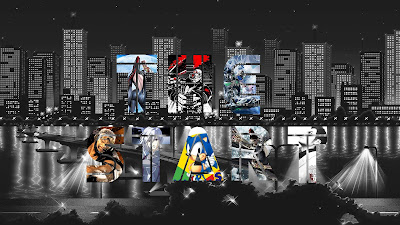
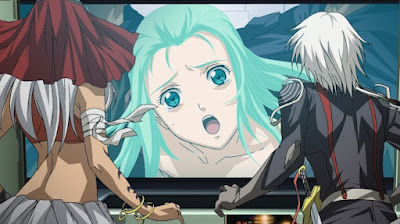
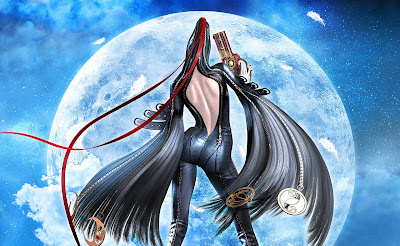
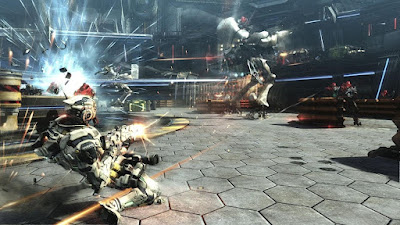


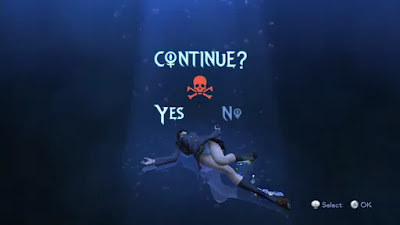
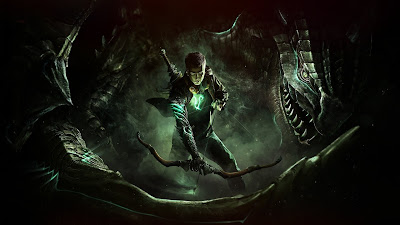
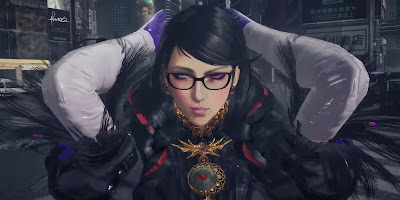
Comments
Post a Comment